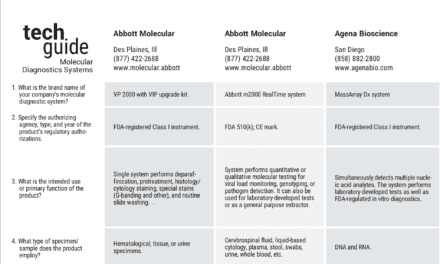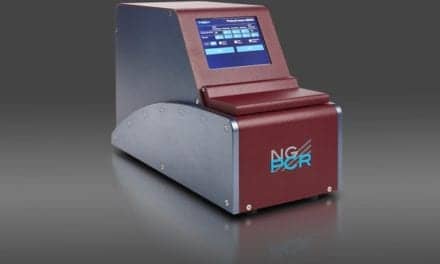A study using MI GPSai (Genomic Prevalence Score), an artificial intelligence (AI)-driven product using DNA sequencing and whole transcriptome data to aid in the diagnosis of cancer, has produced positive results, according to Caris Life Sciences, Irving, Texas.1
Caris’ MI GPSai algorithm trained on genomic data from over 34,000 cases and genomic and transcriptomic data from more than 23,000 cases and was validated on over 19,500 cases. MI GPSai predicted the tumor type in the labeled data set with an accuracy of over 94% on 93% of cases while deliberating among 21 possible categories of cancer. When also considering the second highest prediction, the accuracy increases to 97%. Additionally, MI GPSai rendered a prediction for 71.7% of carcinoma of unknown primary (CUP) cases.
“CUP remains a major clinical challenge and outcomes are poor,” says Elisabeth Heath, MD, associate center director for translational sciences at Karmanos Cancer Institute. “Molecular predictors of tumor origin can assist in addressing this problem by providing critical information in CUP cases that can inform treatment decisions and potentially improve outcomes. MI GPSai results provide additional insight by assessing how closely tumors match the genomic and transcriptomic signatures of tissue types to help physicians make more informed treatment decisions.”
“Cancer of unknown primary occurs in 3% to 5% of patients when standard histological diagnostic tests are unable to determine the origin of metastatic cancer,” says John Marshall, MD, chief of division hematology and oncology at Georgetown University. “Typically, a CUP diagnosis is treated empirically and has very poor outcomes, with median overall survival less than one year. Gene expression profiling alone has been used to identify the tissue of origin but struggles with low neoplastic percentage in metastatic sites which is where identification is often most needed.”
In addition to its role in understanding CUP, MI GPSai functions also as an outstanding quality control tool when integrated into the pathology laboratory workflow. MI GPSai is run at no additional cost on all Caris cases, and Caris’ team of expert pathologists will further investigate any results that present as atypical or ambiguous. Considering that the rate of inaccurate diagnosis ranges between 3% and 9%, inclusion of MI GPSai in clinical routine could improve diagnostic fidelity overall.
“MI GPSai has become an integral part of the pathological assessment we perform on every patient we profile,” says Matthew Oberley, MD, PhD, executive medical director at Caris Life Sciences. “With this comprehensive workup, we identify misdiagnosed patients on a daily basis and are able to work with the treating oncologist to ensure the patient gets the correct treatment regimen for their disease.”
“MI GPSai does more than provide critical information to help diagnose CUP cases and catch misdiagnosed cases,” says David Spetzler, MBA, PhD, president and chief scientific officer at Caris Life Sciences. “It has provided a molecular definition of these 21 cancer types, which is essential information to enable the early detection of cancer in the blood.”
“MI GPSai was generated using an artificial intelligence platform that leverages the Caris Deliberation Analytics (DEAN) framework. DEAN uses biomarker data as feature inputs into an ensemble of over 300 well-established machine learning algorithms,” says Jim Abraham, PhD, chief data officer at Caris Life Sciences. “Utilizing our large collection of molecular and pathological data allowed us to develop MI GPSai which is, to our knowledge, the first artificial intelligence-derived molecular classifier that utilizes DNA and RNA information to make tumor type predictions across a broad spectrum of diagnostic classes with high accuracy.”
For more information, visit Caris Life Sciences.
Reference
1. Abraham J, Heimberger AB, Marshall J, et al. Machine learning analysis using 77,044 genomic and transcriptomic profiles to accurately predict tumor type. Transl Oncol. 2021;14(3):101016. doi: 10.1016/j.tranon.2021.101016.




